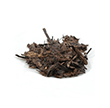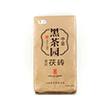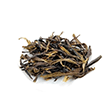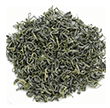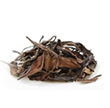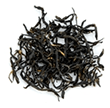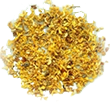Chinese Tea Tasting Terms
Reference: The Tea Drinkers Handbook
Delmas, Minet and Barbaste
Publisher: Abbeville Press
http://www.abbeville.com/bookpage.asp?isbn=9780789209887
The Odors, Scents, And Aromas
Let's start with the hardest part, the vocabulary of odors, which helps us describe those characteristics linked to the sense of smell that can be detected both in the dry leaf and the infusion, and also the characteristics of the liquor, perceived by retro-nasal olfaction. Like many professional tasters, we begin with families of odors, rather than the molecules or groups of molecules that create the odors. Our objective in assembling this vocabulary is to define a certain number of the major aromatic "families" encountered in the course of tea tasting. This approach allows us to pass from general sensations to specific ones and fits in well with the way the odors enrich one another. It is important to understand that these families do not stand in isolation and there are no strict barriers between them. So, an iodized note suggesting fish, like that found in Japanese Sencha teas, often also has floral accents of the rose type. The note of hay that can be detected in many dry tea leaves may lead on towards the vanilla and woody groups.
Herbaceous Green
- Fresh herbaceous : green stems, privet, freshly mown grass, sap, sorrel, watercress, cultivated mushrooms
- Aromatic herbs : basil, mint, bay leaves, coriander, sage, dill
- Cooked vegetable: artichoke, spinach, French beans, zucchini, cooked vegetables, raw vegetables
- Dried herbaceous : hay, wicker, straw, tobacco, malty, coumarin (resembling new-mown hay)
Marine
- Shellfish : winkles, mussels, oysters, whelks
- Crustaceans : crab, velvet crab, crab claws
- Fish : salmon meat, fish skin
- Others : iodine, seaweed, kelp,
Floral
- Fresh Floral: fresh roses, orange blossom, peony, geranium, hyacinth, freesia, lily of the valley, lilac, narcissus
- White flowers : jasmine, daisy, marguerite, mimosa, wisteria, lily, osmanthus (a native Chinese species)
- Exotic flowers : frangipani (the Temple tree of Hawaii), orchid, Tahitian gardenia, magnolia, ylang-ylang (from the cananga odorata tree ), Rose absolute (Rosa damascena)
Fruity
- Orchid Fruits : pear, apple, quince, grape, plum, mirabelle, cherry, grape, peach, apricot
- Berries : strawberry, raspberry, blackcurrant, blackberry, black fruit, red fruit
- Exotic fruit : mango, passion fruit, lychee, kiwi
- Citrus fruit : zest, lemon, orange, mandarin orange, bergamot orange
- Cooked fruit: prune, date, fruit jam, stewed fruit, fig, raisin, currant, cherry stone
- Nuts : green almonds, bitter almonds, chestnuts, hazelnuts, walnuts, horse chestnuts
Spicy
- Mild spices : cinnamon, licorice, vanilla, anise, nutmeg
- Hot spices : clove, cardamom, pepper
Butter, Dairy Produce
- Fresh butter, melted butter, cream, milk, condensed milk
Sweet, Vanilla
- Vanilla sugar, honey, wax, pollen
Rich
- Chocolate, cocoa, mocha, sweetened chestnut puree, frangipane, caramelized apple, caramel, jam
Undergrowth
- Humus, damp leaves, moss, patchouli
Earthy
- Damp soil, cellar, mushroom, mold, dust, stony, wet earth after a storm, peat, saltpeter
Woody
- Waxed wood, dry wood, cedar, sandalwood, vetiver (a relative of lemon grass), balsa wood, pine, arnica
- Woody with gamy notes : holly, blackcurrant leaves
Gamy
- Leather, saddlery, horse
- Big cat, musk, damp wool, sweat
- Manure, stable, tannery, menagerie
- Cat urine, indole (chemical present in some plant oils and tar, also in feces)
- Truffle
Burnt
- Roasting coffee,
- Breadcrumbs, bread crusts, brioche,
- Toasted hazelnuts, peanuts, popcorn
Smoked
- Bacon, juniper, tar, hydrocarbons
Mineral
- Metallic, hot metal, silica, flint
A Reminder of Flavours
- Salty
- Sweet
- Acid
- Bitter
- Umami (Japanese word meaning "savory" or "meaty")
Words Describing Texture
Astringency : a bitterness in the mouth, of varying degrees, caused by tannin. Sometimes a sensation of dryness.
Body : characteristic of a liquor combining good structure with a certain thickness. Adjective: full-bodied.
Flowing : describes a liquor that is supple, without asperity. Used to describe teas with low tannic content.
Mouth-filling : gives a sensation of fullness in the mouth. See also roundness.
Oily : reminiscent of oil in texture, with a varying degree of delicacy.
Powdery : describes a very slight astringency on the palate that leaves an impression of a fine powder in the mouth.
Rasping : is said of very astringent teas, often of poor quality or infused for too long.
Robust : describes a very full-bodied tea.
Roundness : characteristic of a liquor that fills the mouth in a rounded way. Adjective: rounded in the mouth.
Silky : describes a supple and slightly oily liquor, reminiscent of silk.
Smooth : describes a liquor lacking harsh tannins and therefore without asperity.
Structured : describes a predominantly tannic, "mouth-filling" liquor.
Supple : is said of a liquor that is more velvety than astringent.
Thick : describes a liquor with a viscosity not like water but more reminiscent of oil or cream.
Unctuous : is said of a tea that is rounded in the mouth and slightly oily.
Velvety : describes a slightly thick liquor, reminiscent of velvet.
Watery : describes a liquor without astringency or sense of texture.
Additional Tasting Terms
Ample : a liquor that is full and round, with flavors that fill the mouth.
Aromatic : describes a rich liquor with plenty of flavor.
Aromatic palette : the entirety of the notes perceived in a liquor.
Aromatic profile : the whole of the aromatic characteristics of tea. It takes account of the transience of the notes (initial-main-background) and often of the impact of the texture and flavors on the balance.
Ascending : often used to describe very volatile and direct initial aromas.
Attack : describes the first notes perceived, either by direct inhalation or retro-olfaction.
Balanced : describes a liquor in which the aromas succeed each other smoothly, well highlighted by the flavors and texture.
Bouquet : the whole of the aromatic characteristics sensed by the nose.
Complex : describes a bouquet that is very rich in clearly defined aromas.
Dominant : describes those families of aromas most strongly present in the liquor or infusion.
Final : describes the last notes picked up either by inhalation or retro-olfaction.
Finesse : a liquor with subtle and precise aromas.
Frank : describes a tea with well-defined characteristics (texture, flavors, aromas, etc.) without defect or ambiguity.
Frivolous : a tea that is both rich in aromas and short in the mouth— an impression of elusiveness.
Fullness : sensation offered by a tea which fills the mouth, without acidity and with rather sweet aromas.
Generous : rich in aromas.
Harmony : when flavor, texture, and aromas are well balanced, with a fine succession of notes.
Heavy : refers to a background aroma.
Infusion: this means both the act of infusing and the wet leaves that are recovered after infusion. In the case of tea, the product of the infusion is always referred to as the liquor.
Intense : having strength and duration.
Liquor : the liquid obtained by infusing tea leaves.
Lively : a liquor that is fresh and light with a dominant note that is slightly, but not excessively, acid. Very agreeable in general.
Long in the mouth : is said of a tea with aromas that leave a pleasant and lasting impression in the mouth and at the back of the mouth, after tasting.
Monolithic : describes a narrow aromatic palette, the individual notes being inseparable from each other.
Mouth : the entirety of the sensations perceived by the palate.
Nose : see bouquet.
Note : synonymous with aroma.
Opulent : describes a rich, heavy, and often heady aroma.
Peak : initial notes expressed in fits and starts.
Persistence : characteristic of aromas that linger long in the mouth.
Presence : the way the tea presents itself in the mouth.
Short in the mouth : leaves little trace in the mouth or at the back of the mouth after tasting.
Strong : rather vague term that is generally applied to a full-bodied, dark-colored liquor.
Sustained : describes an aroma that remains a long time in the mouth.
Sweet : is said of teas having a slightly sweet flavor, with no astringency associated with sweet, vanilla-flavored aromas.
Tannic : describes a liquor that is rich in tannins.
With a few clicks you can find all our teas that exactly match your tastes at Ask The Tea Wizard .
 Top of Page
Top of Page

Ask The Tea Wizard
Don't know which tea is right for you? Answer a few questions and the Online Wizard will show you all the Chinese teas that suit your taste.


